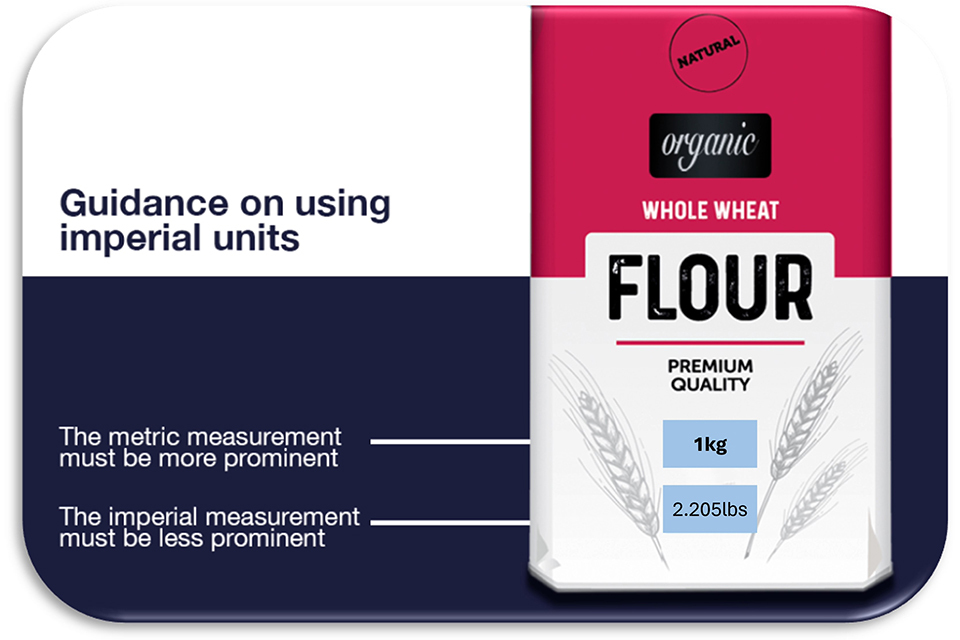Choice on units of measurement: guidance on markings and sales
Updated 27 December 2023
Introduction
1) Imperial units have been in use for centuries in the UK and remain part of our national identity. The imperial system of units plays an important part in the history of our nation.
2) Whilst the UK has adopted the metric system, imperial units remain widely used among the public and remain legal as primary indications of measurement for certain areas such as draught beer and cider, precious metals (by troy ounce) and milk in returnable containers. We commonly refer to our walks in miles, our fuel economy in miles per gallon and height in feet and inches.
3) Although the government is not changing the law on units of measurements used in sales, we recognise that some people would welcome greater use of imperial units in domestic trade and have set out below the conditions under which the current legislation permits this.
Current legislation on using imperial units
4) UK law currently requires metric units to be used for all trade purposes with only limited exceptions. The units of measurements used in UK domestic trade are regulated by the Weights and Measures Act 1985 (in Great Britain), the Weights and Measures (Northern Ireland) Order 1981 (in Northern Ireland) and the Units of Measurement Regulations 1986 (UK wide), among other legislation. Weights and measures is a broadly devolved matter in respect of Northern Ireland. However, whilst the legislative references may differ, the legal position on the use of imperial units is currently the same across the UK.
5) Under both the Weights and Measures Act 1985 and the Weights and Measures (Northern Ireland) Order 1981, supplementary indications such as imperial units can be used alongside metric units as long as “the metric indication is the more prominent, the imperial indication being, in particular, expressed in characters no larger than the metric indication.”
6) Currently, imperial units are only authorised for use on their own in specialised fields, such as for sales of draught beer and cider, and milk in returnable containers, where the pint is used, and transactions in precious metals where the troy ounce is used. There are sanctions for non-compliance.
Guidance on using imperial units
7) You can voluntarily choose to use imperial units when selling packaged or loose goods in the UK. You must also display a metric measurement alongside. The imperial measurement must be less prominent than the metric measurement and must be expressed in characters no larger than the metric indicator.

8) The imperial measurement can be in characters the same size as the metric indicator provided the metric indicator is made more prominent in another way, for example, by putting the metric in a bold font.
9) The only products you can sell solely in imperial measures are:
- draught beer or cider by pint
- milk in returnable containers by pint
- precious metals by troy ounce
10) The government encourages businesses to consider expanding the choice of units of measurement in sales they offer to their customers, where appropriate, in line with the freedoms set out in the current legislation. For some businesses, offering an imperial measurement alongside the more prominent metric measurement may enhance the inclusivity and accessibility of their products, as some consumers may have greater familiarity with imperial units.
